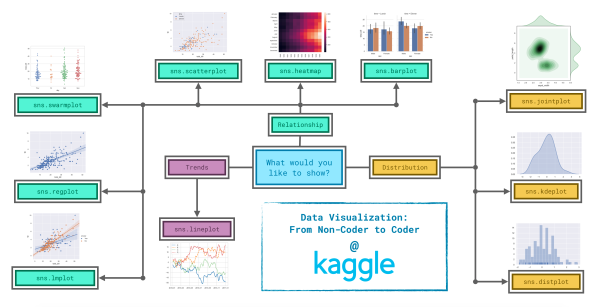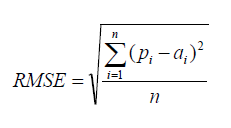Course InformationCourse Name: Special Topics in IT (NLP) Course ID: ICTS6361 Instructor: Motaz Saad Term: Fall 2020 Course DescriptionThis course provides master students with basic and advanced knowledge about Natural Language Processing (NLP). The course covers the following topics: word embeddings, recurrent neural networks, text classification with RNN, machine translation, Textbooks Speech and Language Processing... Continue Reading →
مساق العمل الحر
عرض-تقديمي-لكتاب-المنتور-في-العمل-الحرDownload المتنور في العمل الحر عبر الانترنتDownload https://youtube.com/playlist?list=PL39RMbpB79NP-vPGP_UTBSpgyr_oVFh70 المحاضرات النظري https://www.youtube.com/playlist?list=PL9fwy3NUQKwa9rC5Gd35Db8Bg7t3iUIxb المحاضرات العملية المواضيع العمل الحر مقدمة للعمل الحر بناء بروفايلاتك وعرض اعمالك الاكاديمية والمهنية ادوات العمل الحر ادارة واختيار الزبائن الزبائن وتجنب الاحتيال استراتيجيات اختيار المشاريع كتابة مقتراحات المشاريع وعمل عروض للزبائن الادارة المالية تقسيم المشروع الى اجزاء ايجاد زبان بمستوى معين اضافة قيمة... Continue Reading →
How to do an NLG Evaluation: Metrics
A metric-based evaluation give an NLG system a score by computing how similar its output text is to “gold-standard” reference texts. There are a number of different metrics (including BLEU, METEOR, and ROUGE), which are based on different scoring functions.
I am not a great fan of metric-based evaluation, for reasons I explain below, and would be very dubious if, for example, I was asked to review a paper on NLG which only presented a metric-based evaluation. Nevertheless, I will also below give some advice on best practice for such evaluations.
Why I am Dubious About Metric-Based Evaluation
I have written about this in other blog entries, including Evaluation in Medicine and NLG/NLP and Types of NLG Evaluation: Which is Right for Me?. But needless to say, I wont pass up an opportunity to express my views once more…
Evaluation is a form of hypothesis testing…
View original post 1,425 more words
Data Science Platforms other than Kaggle
Kaggle is a well-known platform for Data Science competitions. It is an online community of more than 1,000,00 registered users consisting of both novice and experts. However, apart from Kaggle, there are other Data Mining Competition Platforms worth knowing and exploring. Here is a brief overview of some of them. Driven Data DrivenData hosts data science competitions to... Continue Reading →
Structured Datasets / Competitions for Classification / Regression
Competition Practice - Structured Data https://www.kaggle.com/c/m5-forecasting-accuracy/ https://www.kaggle.com/c/titanic Structured Datasets for classification / regression https://www.kaggle.com/ronitf/heart-disease-uci https://www.kaggle.com/uciml/mushroom-classification https://www.kaggle.com/uciml/glass https://www.kaggle.com/uciml/zoo-animal-classification https://www.kaggle.com/iabhishekofficial/mobile-price-classification https://www.kaggle.com/hb20007/gender-classification https://www.kaggle.com/lodetomasi1995/income-classification https://www.kaggle.com/szamil/who-suicide-statistics https://www.kaggle.com/nehalbirla/vehicle-dataset-from-cardekho
Basic Feature Engineering with the Titanic Data
Today we are going to add a couple of features to the Titanic data set that I have discussed extensively, this will involve changing my data cleaning script. Following this I will test the new features using cross-validation to see if they made a difference. These new features come from reading the Kaggle forums and also this helpful blog post.
Titles
First up the Name column is currently not being used, but we can at least extract the title from the name. There are quite a few titles going around, but I want to reduce them all to Mrs, Miss, Mr and Master. To do this we’ll need a function that searches for substrings. Thankfully the library ‘strings’ has just what we need.
Using this iteratively I was able to get a full list of titles.
Now that I have them, I recombine them to the four categories.
You…
View original post 306 more words
Datasets for Visualization
Human Resources Data SetWorld Development IndicatorsIndia - Trade DataStudents Performance in Exams515K Hotel Reviews Data in EuropeBarcelona data setsCoffee and Codemlcourse.aiCovid-19 - South KoriaMelbourne Housing SnapshotCampus Recruitment - Academic and Employability Factors influencing placement2015 Flight Delays and Cancellations2018 Airplane Flights - Predicting prices of airline flights!Data Stories of US Airlines, 1987-2008 - Fight arrival and... Continue Reading →
Ensemble Method
Ensemble Method is simple a bunch of classifiers or regressors There are two methods; stacking and bagging Stacking Bagging
Splitting your data for machine learning projects
Model Evaluation is an integral part of the model development process. It helps to find the best model that represents our data and how well the chosen model will work in the future. Evaluating model performance with the data used for training is not acceptable in data science because it can easily generate overoptimistic and... Continue Reading →
Machine Learning Model Evaluation – Regression
After building a number of different regression models, there is a wealth of criteria by which they can be evaluated and compared. Root Mean Squared Error RMSE is a popular formula to measure the error rate of a regression model. However, it can only be compared between models whose errors are measured in the same... Continue Reading →
Machine Learning Model Evaluation – Classification
Confusion Matrix A confusion matrix shows the number of correct and incorrect predictions made by the classification model compared to the actual outcomes (target value) in the data. The matrix is NxN, where N is the number of target values (classes). Performance of such models is commonly evaluated using the data in the matrix. The... Continue Reading →
Some Classical Machine Learning Algorithms
Learning Zones!The map of the machine learning worldMachine Learning ProcessNaive BayesianKNN ClassificationDecision TreeSupport Vector MachineDecision Tree RegressionRandom Forest Machine Learning AlgorithmAssociation RulesK-Means Clustering
Machine Learning Simplified
y = f(X)y is your targetX = x1, x2, x2, …..f = is your model building ML model steps define: y, X, ML algorithm (the model)model.fit(X, y): trainingpredict: y = f(X) i.e., y = model.predict(X) evaluate: calculate accuracy of model 'f' Features of orange / apple could be color, texture, weight, size, ..... Or could... Continue Reading →
Blinky™! 🙂, The Robot
Blinky™! 🙂 https://player.vimeo.com/video/21216091 Blinky™ from Ruairi Robinson on Vimeo. https://player.vimeo.com/video/181335339 Blinky motion capture test from Ruairi Robinson on Vimeo. Deadly orders and Rules that Blinly applied: Rules: The Mom said “if you keep doing this crap, I will tell Blinky to cook you for diner” Orders: Alex, “kill me, kill my parents, kill everybody ……” Read more about this short film: Analyzing Blinky™... Continue Reading →
Verb Modes
Indicative mode: (expresses an assertion, denial, or question: Paris is the capital of France, Ostriches cannot fly, Have you finished your work?)Imperative mode (do this and do not do that)Subjunctive mode (expresses doubt: If I should see him, I will tell him.)Infinitive mode (to walk, to go, ….) By Maeve Maddox English verbs have four... Continue Reading →
First, Second, and Third Person With Examples
PersonSubjective CaseObjective CasePossessive Case Possessive AdjectivePossessive Case Absolute Possessive PronounsFirst Person SingularI Example: I like cheese.me Example: He likes me.my Example: This is my car.mine This is mine.First Person Pluralwe Example: We hate celery.us Example: They hate us.our Example: This is our house.ours Example: This is ours.... Continue Reading →
مصطلحات الاعراب عربي /انجليزي
ArabicEnglishAbbrمرفوع NominativeNom.منصوبAccusative Acc.مجرور GenitiveGen.فعل VerbVerbفاعلSubject مفعول Object ظرفadverbAdv.صفةadjective جار - حرف جرPreposition مجرورObject of a preposition المصادر https://arabic.desert-sky.net/g_cases.htmlhttps://web.stanford.edu/~jurafsky/slp3/8.pdfhttp://www.nltk.org/book/ch05.html
Python on the cloud – Free
platforms that allows you to write python code online for free Google Colab KaggleRepl.itMicrosoft Azure Binder (mybinder.org)
Data Science Training – WAC
Outline #Main TopicSub-TopicsWeekly Assignment1 Introduction - Data Science- Artificial Intelligence - Machine Learning - Big Data - Variable & Expressions - Conditional Execution 2Python- Functions - Loops- String Processing - Reading and Writing FilesPractice Python on Hackerrank and on Replit platforms and pass selected challenges 3Python Collections- Lists - Dictionaries - Tuples - Regular Expressions Practice Python on... Continue Reading →












